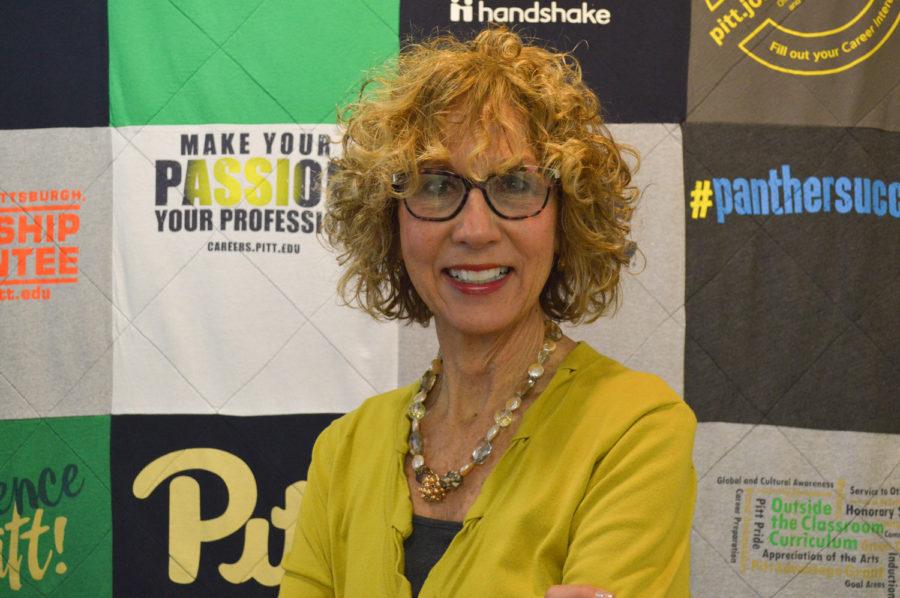Cheryl Finlay is responsible for developing and overseeing services that help thousands of Pitt students in their quest to get an internship, land a research assistant position and — most frightening of all to future graduates — find a job. As director of the Office of Career Development and Placement Assistance, she encourages employers to recruit and hire Pitt graduates, guides students through the process of applying for and obtaining a job and oversees career fairs, networking events and job-shadowing programs.
Finlay answered some of The Pitt News’ questions about how students can manage work and study, figure out their career path and take advantage of resources on campus to help them find employment opportunities.
The Pitt News: How can students balance a job and school life?
Cheryl Finlay: Balancing a job and school life can be challenging. Working while completing a degree isn’t easy. Some students work 15-20 hours per week, are taking four or five classes and spend the rest of their time studying and getting different types of much-needed downtime — that’s taxing.
One effective way for students to balance their competing priorities is to maintain weekly and monthly schedules, and realize that there will be periods throughout the year when school work trumps your part-time job and you need to adjust work hours in order to study. Having conversations with your employer ahead of time and discussing options is having a good contingency plan in place.
TPN: How should students decide which jobs are the best for them?
CF: Students ready for employment might look for a job that can teach them skills that will enhance their education or teach them a skill set that they think could be strengthened. Every type of job can help build useful skills.
For example, working as a research assistant in an area of study will certainly make you more knowledgeable about that field and allow you to work more closely with professionals in the department. And delivering food can sharpen one’s ability to multitask, communicate well with many types of people, work with deadlines and help you learn the city. Every job teaches you something.
TPN: How should students approach other people for job opportunities through methods such as Facebook and LinkedIn?
CF: Using your personal and professional networks effectively is an important component of your job search. Consider asking contacts if they would be willing to do an informational interview with you in order to learn more about their industry or field and offer you any advice on your search process. Not only can this provide you with valuable information about your field of interest, your contacts will also know that you are searching and interested in work opportunities. When it comes to online networking, having a mutual contact introduce you or identifying something that you have in common with the individual goes a long way. Finally, don’t overlook Handshake as an important online resource: make sure your Handshake profile is updated, resumé is uploaded and public and that your profile is viewable to employers. Many recruiters use this platform to reach out directly to Pitt students about open internships and jobs, and you don’t want to miss this opportunity.
TPN: How should a student having trouble finding a career direction find a path? What resources would help them establish a career goal?
CF: Choosing a major, learning about career options and exploring options can all feel very intimidating whether you’re a first-year student or further along in your Pitt education. CDPA has several career consultants who work specifically with students who are still exploring majors and paths, and can provide you with resources and discussions to help with this process. Additionally, for students who have identified their career goals but need help creating an action plan, meeting with the career consultant who works with their major is an important step as well. If you haven’t met with our staff, schedule an appointment today by logging into Handshake.
TPN: Are there any other ways than the ones mentioned that students can find employment?
CF: The key is really that the more things you do, the more successful your search for employment will be. Students at Pitt are able to meet with employers on campus at information sessions, networking events, career fairs and through on-campus Interviews. They are also able to meet employers at their place of business through our job shadows in the Pittsburgh area and in cities such as New York, Philadelphia and Washington, D.C. Students should also make sure they are utilizing online resources such as Handshake and LinkedIn. Last, meeting with your career consultant is important so that you are prepared to put your best foot forward when meeting with employers. The more effort you put into these, the better your results will be.


